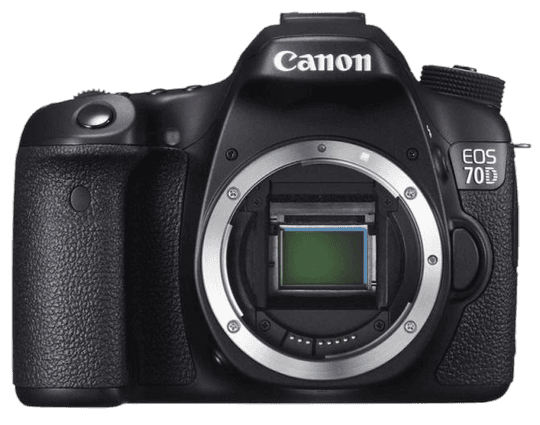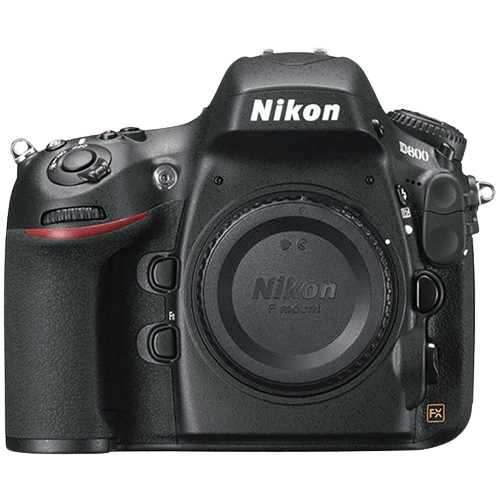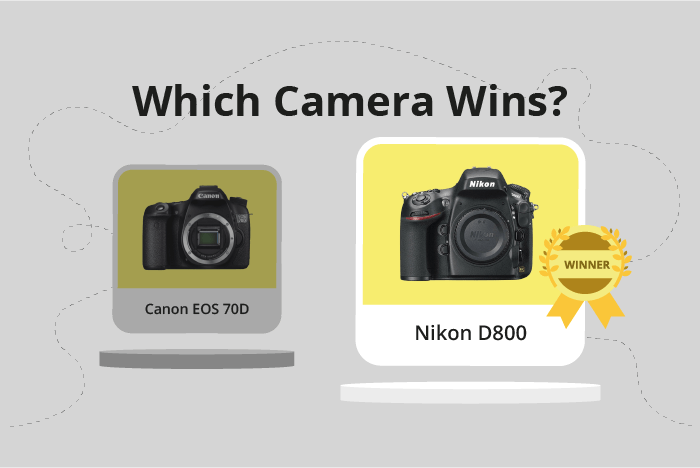Canon EOS 70D vs Nikon D800 Comparison
Canon EOS 70D

Nikon D800

The Nikon D800 outperforms the Canon EOS 70D with a score of 69/100 compared to 60/100. Both cameras are DSLRs, released in 2012 and 2013, respectively. They share similarities in size and weight, with the D800 being slightly larger and heavier.
The Nikon D800 surpasses the Canon EOS 70D with its higher score, reflecting its superior quality. However, the Canon EOS 70D has a lower launch price, making it a more affordable option for those on a budget.
Taking these factors into consideration, the Nikon D800 is the better choice for those seeking a higher-quality camera, while the Canon EOS 70D is a more budget-friendly option without compromising too much on performance.
Canon EOS 70D vs Nikon D800 Overview and Optics
The Nikon D800 outperforms the Canon EOS 70D in terms of optics, with a score of 74/100 compared to the 70D’s 58/100. Both cameras share some common specifications, such as the CMOS sensor type, lack of image stabilization, and similar lens mounts (Canon EF-S for the 70D and Nikon F FX for the D800).
The Nikon D800 excels in several areas, most notably with its 36.3-megapixel resolution, which is significantly higher than the 20.2 megapixels offered by the Canon EOS 70D. Additionally, the D800 boasts a full-frame sensor size, compared to the 70D’s smaller APS-C sensor. This larger sensor size allows for better image quality and low-light performance. The D800 also has a higher DXOMARK score for its sensor, achieving a 95 compared to the 70D’s 68, further indicating its superior image quality capabilities.
On the other hand, the Canon EOS 70D has some advantages over the Nikon D800, such as a faster shooting speed of 7 frames per second, compared to the D800’s 4 frames per second. This makes the 70D more suitable for capturing fast-moving subjects or action shots. Additionally, the 70D’s processor, the Digic 5+, is a more advanced model than the D800’s Expeed 3 processor.
Taking into account the specifications and scores for each camera, it is evident that the Nikon D800 is the better option for those prioritizing high-resolution images and superior image quality. However, the Canon EOS 70D may be more suitable for photographers who require faster shooting speeds and a more advanced processor.
Canon EOS 70D vs Nikon D800 Video Performance
The Nikon D800 outperforms the Canon EOS 70D in terms of video capabilities, scoring 57 out of 100 compared to the 70D’s score of 43. Both cameras share some common specifications, such as Full HD video resolution and maximum video dimensions of 1920 x 1080. Additionally, both cameras can achieve a maximum video frame rate of 30 frames per second.
The Nikon D800’s higher score highlights its superior video performance. One notable advantage is the presence of built-in time-lapse functionality, which allows users to create stunning time-lapse videos without the need for external accessories or software. This feature sets the D800 apart from the 70D and contributes to its higher score.
On the other hand, the Canon EOS 70D does not offer any significant advantages in video capabilities over the Nikon D800. Both cameras share the same maximum video resolution, dimensions, and frame rate, with the 70D lacking the time-lapse functionality found in the D800. As a result, the 70D’s lower score reflects its limited video performance in comparison to the D800.
Based on the comparison of video capabilities, the Nikon D800 proves to be the superior camera. Its built-in time-lapse functionality gives it an edge over the Canon EOS 70D, which lacks this feature. For users seeking a camera with excellent video performance, the Nikon D800 is the clear winner between these two models.
Canon EOS 70D vs Nikon D800 Features and Benefits
The Canon EOS 70D outperforms the Nikon D800 in features, scoring 70 out of 100 compared to the Nikon’s 57. Both cameras share a few similarities, such as 3-inch screens, lack of GPS, and WIFI connectivity. However, the Canon EOS 70D offers more advanced features, making it the better choice in this category.
The Canon EOS 70D has a higher screen resolution of 1,040,000 dots, compared to the Nikon D800’s 921,000 dots. This provides a clearer and more detailed image preview. Additionally, the Canon EOS 70D has a touchscreen, which makes navigating menus and settings more convenient. Furthermore, the Canon EOS 70D features a flip screen, allowing for more flexible shooting angles and easier self-portraits.
The Nikon D800 does have a slightly larger screen at 3.2 inches, but this minor advantage does not compensate for the lack of other features. The Nikon D800 does not have a touchscreen or flip screen, which limits its versatility when compared to the Canon EOS 70D.
Based on these comparisons, the Canon EOS 70D proves to be the better choice regarding features. Its higher screen resolution, touchscreen, and flip screen provide a more user-friendly and versatile experience. The Nikon D800 falls short in this category, with its only advantage being a marginally larger screen. The Canon EOS 70D’s higher feature score reflects its superiority in this aspect.
Canon EOS 70D vs Nikon D800 Storage and Battery
The Nikon D800 outperforms the Canon EOS 70D in storage and battery, scoring 71 points compared to the 70D’s 37 points. Both cameras have common features, such as accepting SD, SDHC, and SDXC memory cards and lacking USB charging capabilities. However, the D800 has an advantage with two memory card slots and compatibility with Compact Flash cards.
The Canon EOS 70D has a slight edge in battery life, providing 920 shots per charge compared to the D800’s 900 shots. Nonetheless, the Nikon D800’s superior storage options give it an overall advantage in this category. While the 70D’s battery life is commendable, the D800’s dual memory card slots and additional card compatibility make it the better choice for those prioritizing storage and battery capabilities.
Canon EOS 70D vs Nikon D800 – Our Verdict
Are you still undecided about which camera is right for you? Have a look at these popular comparisons that feature the Canon EOS 70D or the Nikon D800:

